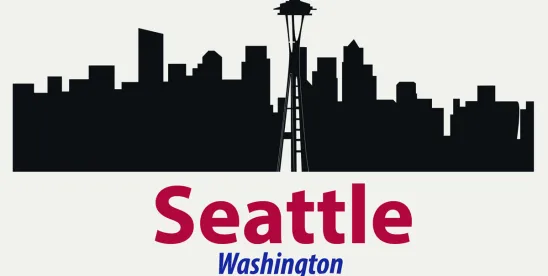The Seattle City Council has enacted the Paid Sick and Safe Time for Gig Workers Ordinance, which temporarily provides paid sick and safe time (PSST) to “gig workers” for online-based food delivery network companies and drivers of transportation network companies with 250 or more gig workers worldwide. The ordinance takes effect July 13, 2020, and ends 180 days after either (1) the termination of the Mayor's civil emergency, or (2) the termination of any concurrent civil emergency applicable to Seattle that is proclaimed by a public official in response to COVID-19, whichever is later. However, the law’s other legal requirements, such as recordkeeping, will stay in effect for three years.
This law applies to all such gig workers who had a work-related stop in Seattle at least once in the 90 calendar days before requesting to use PSST. These gig workers may use PSST in 24-hour increments for any reason covered by the ordinance, including:
(1) caring for themselves or a family member for a physical or mental health condition, including a doctor’s appointment;
(2) caring for themselves, a family member, or a household member for reasons related to domestic violence, sexual assault, or stalking;
(3) when their family member’s school or place of care has been closed; and
(4) if the company reduces, suspends, or discontinues operations for health or safety related reasons.
The ordinance will require covered entities to pay a gig worker his or her "average daily compensation," which is based on each day worked for the covered entity during the highest earning calendar month since October 1, 2019, or since the commencement of work for the company, whichever date is latest.
There are two options to calculate accrual of PSST. First, covered entities can provide gig workers one day of PSST for every 30 calendar days worked in whole or in part in Seattle since October 1, 2019, or upon starting the gig, whichever is later. Alternatively, covered entities can simply provide five days of PSST to gig workers starting on the ordinance’s effective date and let them start accruing one day of PSST for every 30 calendar days going forward.
In certain circumstances, hiring entities may be able to request reasonable verification from the gig worker after three consecutive days of PSST.
Covered entities must create a written PSST policy and provide at least monthly notification of the gig worker's average daily compensation, and the accrued, used, and available PSST.
This law creates a private right of action for violations of the ordinance. Prevailing gig workers can recover treble (3x) economic damages, interest, a monetary penalty for retaliation, and reasonable attorney fees and costs. Gig workers can also bring actions on a class basis and obtain equitable relief.





 />i
/>i
